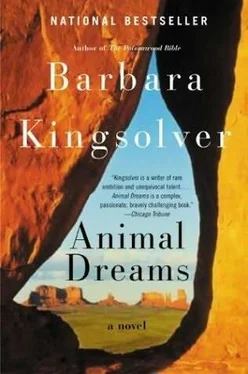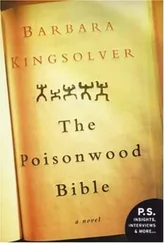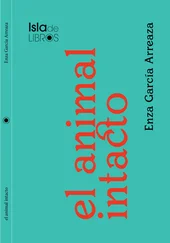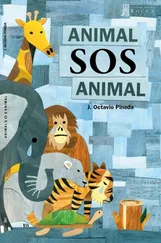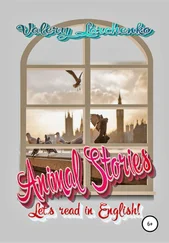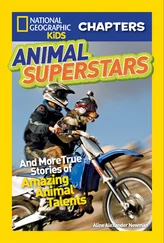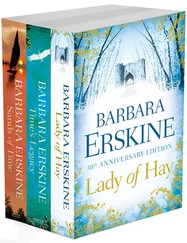I could never know the truth of my mother, but there was another story now. Another side. I closed my eyes and listened to Doña Althea with the joy of a child. I don’t know what they heard on the CBS news. I heard a bedtime story thirty years late.
It rained and rained in Gracela Canyon. February passed behind a mask of clouds. It seemed like either the end of the world or the beginning.
The orchards, whose black branch tips had been inspected throughout the winter for latent signs of life, suddenly bloomed, all at once: pears, plums, apples, quince, their normal staggered cycle compressed by the odd weather into a single nuptial burst. Through my classroom window I watched drenched blossoms falling like wet snow.
Water, in Grace, is an all-or-nothing proposition, like happiness. When you have rain you have more than enough, just as when you’re happy and in love and content with your life you can’t remember how you ever could have felt cheated by fate. And vice versa. I knew, abstractly, that I’d been happy, but now that I was in pain again, that happiness was untouchable. It was a garish color picture of a place I had not been. Memory runs along deep, fixed channels in the brain, like electricity along its conduits; only a cataclysm can make the electrons rear up in shock and slide over into another channel. The human mind seems doomed to believe, as simply as a rooster believes, that where we are now is the only possibility.
But it isn’t. In spite of the promise of plenty that dripped from the rooftops and gushed down Gracela Canyon’s ravines throughout February, the winter rains would soon dry up. Then there would not be another drop until July. During those brittle months the taste and smell of rain would be lost to us, beyond the recollection even of children and the deepest root tips of trees. That is the way of the seasons in a desert place. Only the river ran continuously. The river was Grace’s memory of water.
We heard nothing from Hallie. First I tried to tell myself she was already out of danger. In the past, the two-week delay of her letters had caused me to keep a distrustful eye on Hallie, like a star so many light years away it could have exploded long ago while we still watched its false shine. Now I tried the reverse psychology: we would hear, soon, that she’d been safe while we worried.
But we didn’t, and I gave over to panic. I began to call Managua every week. The Minister of Agriculture, whose secretary now knew me by voice, said there wasn’t any reason for me to fly down to Nicaragua; there was nothing I could do there but wait, which-he implied-I was doing badly enough where I was. He really was not unkind, just frustrated, like any of us. He pointed out that Hallie was an exceptional person, to those of us who loved her, but not an exceptional case-the contras made daily forays across the border to attack workers in their fields, sometimes even schoolchildren. Thousands of civilians had died. “If you came here,” he said, “you would see.” Every home had a framed photograph on a table that stood for a fresh empty space in the family, he said. Teachers and community workers were particularly at risk.
He said I might try making Hallie’s status known to the general public in the United States. It could pressure her captors to show restraint; or, he warned me frankly, it could do the opposite.
I knew nothing else to do, so I wrote letters. Emelina helped. We papered her kitchen table with letters in progress. I drafted mine on stationery from the Grace High School principal’s office, but the letterhead intimidated Emelina, who preferred lined paper from her kids’ loose-leaf notebooks. Viola put a request to the Stitch and Bitch Club, and after that we had volunteers in Emelina’s kitchen for nightly letter-writing sessions. I dictated the main ideas and then they all got the hang of it. I looked up who had voted for sending the guns, and who had voted against, and either way we tried to work it in. I expect we sent out more than a thousand letters. When we lost track of which congressmen we’d written, we wrote them again. We wrote radio stations and any other public entity we believed might be reading its mail. Sometimes I stopped and laid my head on my arms. Emelina would massage the back of my neck and say nothing, because we both suspected words were beside the point.
There may have been publicity we never knew about. We didn’t get the New York Times in Grace. I do know there was a short piece in the Tucson morning paper, in the “Money” section, of all things, right next to an article about how to reduce your mortgage with twice-monthly payments. There was a small, smiling photo of Hallie, who was identified as a former employee of the University Extension Service. The reporter had called up the Minister of Agriculture as I’d suggested, and said that he “alleged” she had been kidnapped by agitators based in Honduras. This was followed by a much longer quote from a state senator who said the Nicaraguan civil war was a tragedy, and that the United States was doing its best to bring democracy to the region, and that no U.S. citizen could go there without expecting to be caught in crossfire.
The reporter, believing I would be pleased, sent me the clipping along with a note wishing my family all the best. The breadth of his ignorance made me feel hopeless, as I’ve sometimes felt in dreams, when the muscles dissolve and escape is impossible. I wept uncontrollably all day. At school I asked my students to read Silent Spring for an hour while I put my head down on my desk and cried. They were subdued. I suspected people in Grace of walking around me on tiptoe now, the way a town might avert its eyes when its resident crazy lady hikes up her skirt and scratches an itch and swears at the blackbirds watching from a telephone wire.
I stopped going to Doc Homer’s for dinner. We were in the worst position to comfort one another. I guessed he could go on about his routine-that had always been the core of his resilience-but I don’t think I’d slept a single night since she’d been taken, and I was reaching an abnormal state of exhaustion. I fought off hallucinations. Late one night Hallie appeared in my bedroom doorway, very small, looking up at me. With those same eyes she used to ask without words to crawl into my bed.
“Hallie, I’m trying so hard. But I don’t know how to save you.”
She turned on stocking feet and walked back into the dark.
I got up and rifled my desk drawers till I found the newspaper clipping with her picture. I looked at it hard, trying to convince myself that Hallie wasn’t a child. I had the black-and-red afghan bundled around me but I felt chilled and hard as a frozen branch. My hands shook. I tucked the clipping into an envelope and wrote a note to the President of the United States, begging him please just to look at her. “This is my only sister,” I told him. “I’m coming to understand responsibility. You gave those men a righteous flag to wave and you gave them guns. If she dies, what will you tell me?” I licked the envelope and sealed it. I knew the address by heart.
We began to get letters back, to the effect that the matter would certainly bear investigation. They weren’t form letters, each one was typed by a different secretary, but they all said the same thing. It surprised me to see how a meaningless phrase repeated again and again begins to resemble truth.
In the middle of that gray month Emelina’s youngest son learned to walk. I was alone with him when it happened. The sun had come out briefly as I walked home from school, and the baby and I were both anxious to be outdoors. Emelina asked if I could just not let him eat any real big bugs, and I promised to keep an eye out. I settled with a book in the courtyard, which was radiant with sudden sunlight. The flowers were beaten down, their bent-over heads bejeweled with diamond droplets like earrings on sad, rich widows.
Читать дальше
